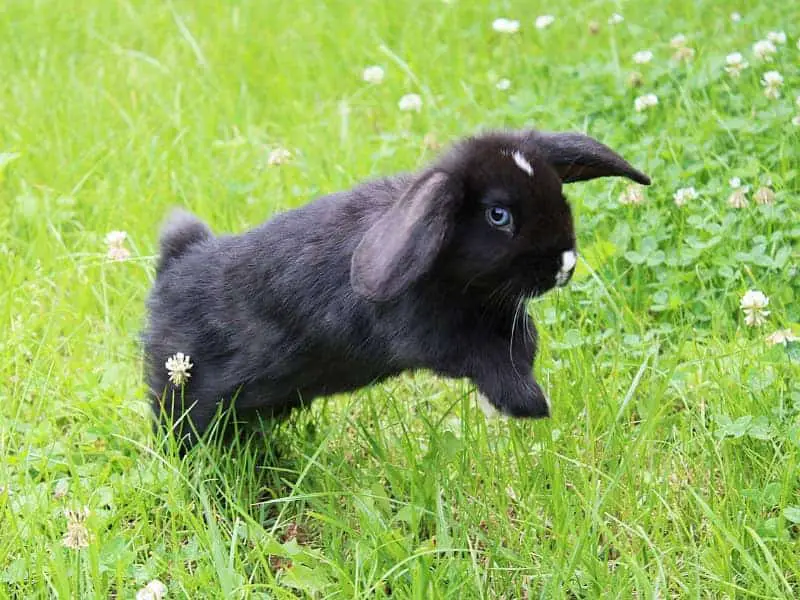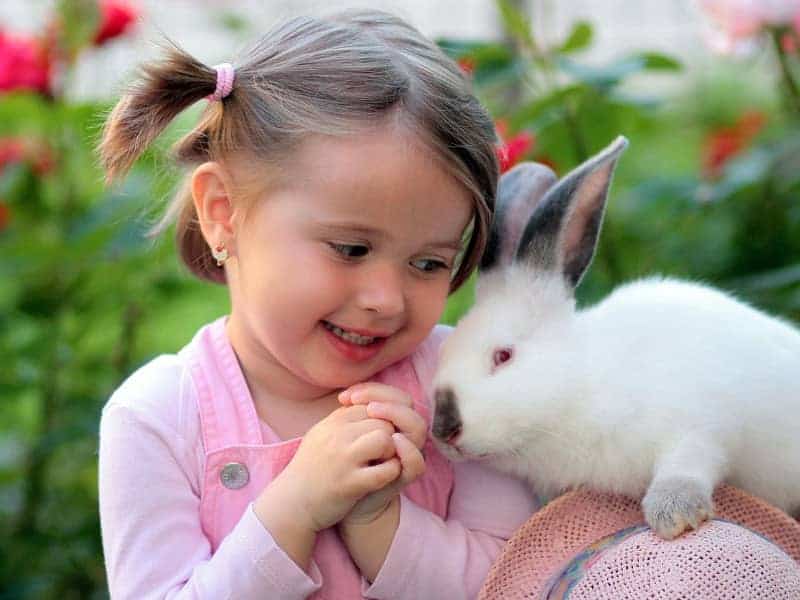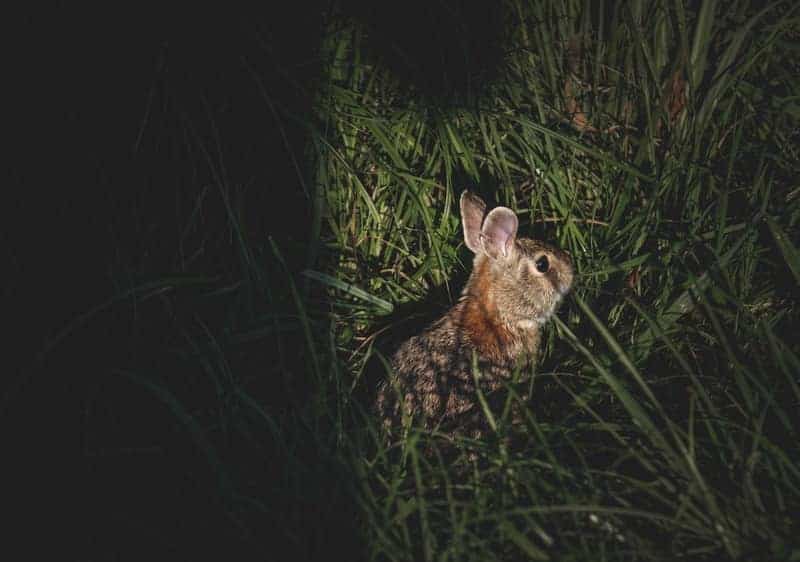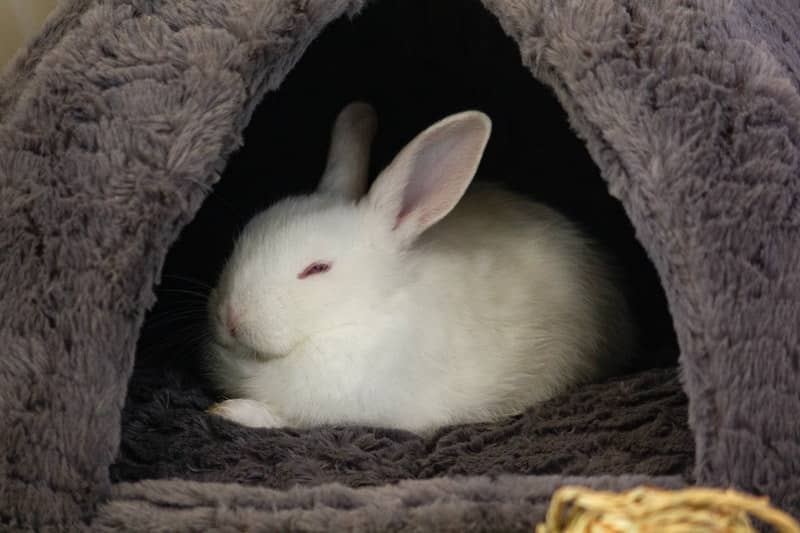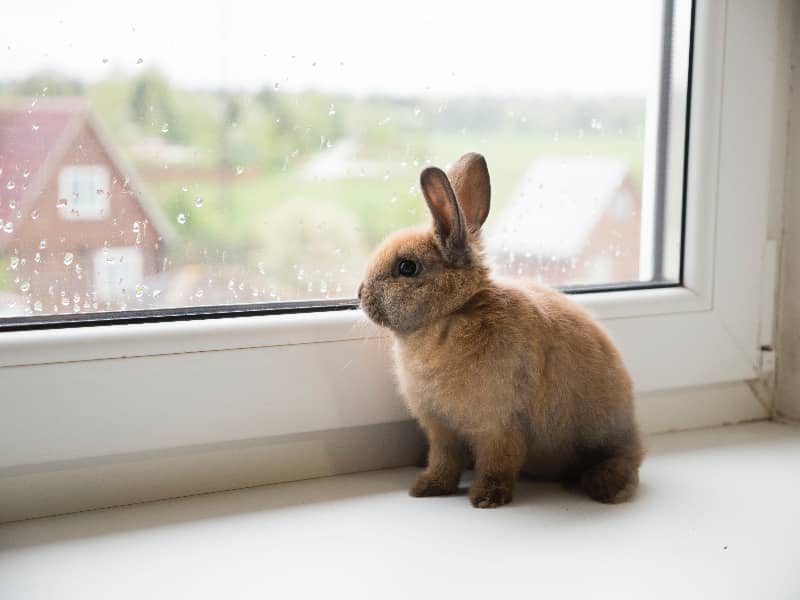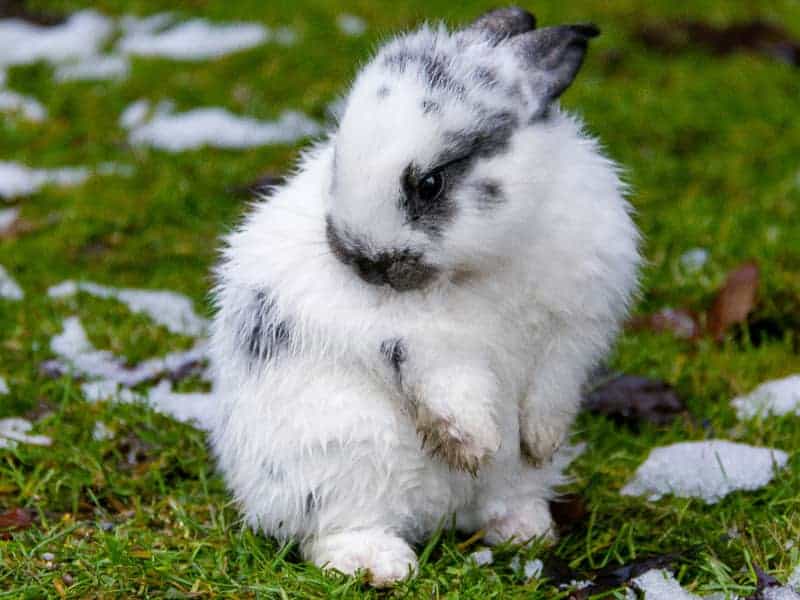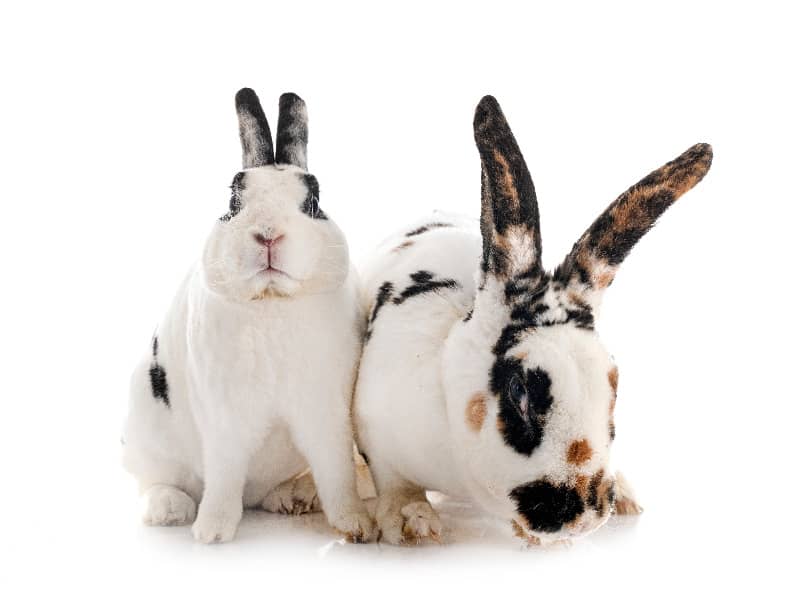
When are rabbits sexually mature?
Welcome to the wonderful world of rabbits! Whether you are already a proud rabbit owner or are just considering adding one of these charming creatures to your home, you are sure to encounter many questions. One of those questions might revolve around when your rabbit is sexually mature. So, let's shed some light on this topic.
The onset of sexual maturity in rabbits
Rabbits are remarkable animals. Their ability to reproduce is equally amazing. You could almost say that they are made to reproduce. But when does this phase of sexual maturity begin? Well, it depends on a few factors.
First, it is important to understand that "sexual maturity" means that a rabbit is biologically ready to reproduce. Here the Gender of the rabbit play a decisive role. Male rabbits, also called bucks, reach this stage a little earlier than their female counterparts, the civets.
Sexual maturity in males usually begins at about three to four months of age. It is important to note that this is only a general guide. Some bucks may reach this stage a little earlier or later. For dachshunds, the timing is a little later, usually between four and six months. Again, each rabbit is unique and variations can always occur.
Signals of sexual maturity
An important part of a rabbit's sexual maturity is its behavior. The changes can be subtle, but they are definitely there. Rabbits are naturally social animals and use a variety of behaviors to communicate with other rabbits.
For example, a male begins to urinate more intensively and mark his territory. This serves to signal his status and presence. This involves adding a strong scent to urine and spreading it throughout the environment. Yes, this can be a little unpleasant!
In civets, behavior can also vary. They may begin to build nests or become more territorial. In doing so, they dig tunnels and burrows and show more vigilance of their surroundings. They may also begin to become more aggressive, biting and chasing their sexual mates. It is their way of expressing their willingness to mate and establish dominance.
The physical changes
In addition to behavioral changes, there are also physical signs that indicate your rabbit is becoming sexually mature. In bucks, this is often visible through the development of the testicles. They can be seen between the hind legs as two small, soft bumps.
In civets, the sign is more subtle. Their vulva may appear swollen and redder than usual, indicating their readiness to mate. They may also begin to shed more fur, especially around their belly and flanks. This is a natural process and not a cause for concern as long as there is not excessive hair loss.
From when dwarf rabbits are sexually mature
Dwarf rabbits, a smaller and often pet rabbit breed, are in a class by themselves. Although smaller than their larger counterparts, they are just as active and fertile. Their sexual maturity occurs slightly earlier, usually between two and three months.
These little wonders of nature are known for their high reproductive capacity. But that's exactly what can become a problem if they are not carefully monitored and managed. Uncontrolled reproduction can lead to overpopulation and stress for the animals. Therefore, it is important to recognize the right time and act accordingly.
Just as with the larger rabbits, behavioral and physical changes occur in dwarf rabbits. They become more active, show mating behavior and the males begin to mark their territory. It is important to recognize these signs and act accordingly to avoid unwanted offspring.
Dealing with sexual maturity
Sexual maturity is a natural and inevitable phase in a rabbit's life. It brings some challenges, but with the right knowledge and preparation, it can be an interesting and educational experience. The key is to observe and understand your rabbit's behavior. Learn his habits and signs and you will be able to act accordingly.
If you are planning to breed your rabbit, then it is important that you are well informed and prepared. Breeding rabbits is not an easy task and requires a lot of time, effort and commitment. Always remember that you are responsible for the welfare of your rabbit and its offspring.
On the other hand, if you do not plan to breed your rabbit, spaying or neutering could be considered. This can help reduce unwanted behavior and improve your rabbit's health. However, as with any medical procedure, this has risks and should be carefully considered and discussed with a veterinarian.
In any case, it is important to remember that your rabbit is an individual. It has its own personality and needs. It is important to observe it and read its signals in order to understand and respond to its needs.
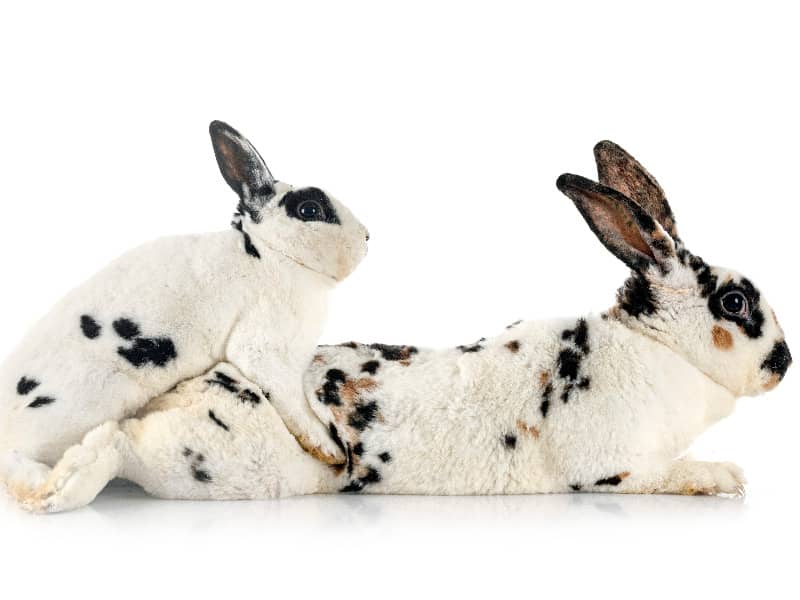
Mating behavior in rabbits
Another interesting aspect to consider is mating behavior in rabbits. This is especially important if you keep more than one rabbit. If your rabbits are sexually mature and have not been sterilized, there is of course the possibility that they will want to mate.
Mating behavior is often very obvious. Males, for example, often exhibit a behavior known as "drumming." This involves stomping on the ground with their hind legs. This is a strong sign that they are ready to mate. Females can also send signals by building a nest of hay and fur, among other things.
Spring fever all year round: rabbits and their reproduction
An interesting Fact about rabbits is that they are ready to mate all year round. They do not have a set mating cycle like some other animals. This means that they can have offspring at any time of the year. This makes them very fertile animals, but it also presents a challenge for those who want to keep them and control their population.
A female rabbit can have up to five litters a year, with four to twelve kittens per litter. This is a considerable number, especially considering that rabbits can become sexually mature at three to four months of age.
Sexual maturity and health
Sexual maturity is not only a time of physical and behavioral changes for your rabbit. It can also have an impact on his health. During this time, your rabbit may be more susceptible to certain diseases and conditions, especially if he is not spayed or neutered.
For example, uterine problems can occur with cibben. These can be serious and in some cases even life-threatening. Therefore, it is important that you carefully monitor your rabbit's health during this time and consult a veterinarian if necessary.
The role of the veterinarian
A veterinarian can be a valuable support when your rabbit becomes sexually mature. He or she can help you recognize the signs of sexual maturity and give you advice and recommendations for dealing with this phase.
In addition, a veterinarian can also help you decide if spaying or neutering is appropriate for your rabbit. These procedures can help prevent health problems and improve your rabbit's behavior.
It's always a good idea to have a trusted relationship with a veterinarian who knows rabbits. This way, you can ensure that your rabbit receives the best care and attention as it goes through this important stage in its life.
Understanding and patience when the rabbit becomes sexually mature
Ultimately, it is important to remember that sexual maturity is a natural and inevitable phase in your rabbit's life. It can be a challenging time, both for your rabbit and for you. But with understanding, patience and proper care, it can also be a time of learning and bonding.
Remember that your rabbit is an individual with its own needs and feelings. It deserves respect and care no matter what stage of life it is in. With the right support and care, your rabbit will survive sexual maturity healthy and happy.
And who knows? Maybe during this time you will discover a whole new side to your furry friend. A side that will only make you appreciate these fascinating, lovable creatures even more. Because one thing is for sure: there is always something new to learn and discover in the wonderful world of rabbits.
Author

-
Garden animal - A life with nature
Welcome to my animal blog! My name is Dirk and I am happy to take you on my journey through the fascinating world of animals and gardening.
Born 54 years ago, I have had an insatiable curiosity for the animal world around me since childhood. Although I have moved professionally in other industries, my true passion has always been animals and nature. It is remarkable how a small garden has become such an important part of my life.
Many of my fondest memories are associated with the animals that share our home. Whether it's the curious squirrels that scurry across the trees in the morning, the colorful variety of birds that visit our feeders, or the busy bees and butterflies that pollinate our flowers, every moment with them is invaluable to me.
This blog is my contribution to share my experiences, discoveries and insights with like-minded people. Here I will share stories of unforgettable encounters with animals, give tips on gardening and creating wildlife-friendly habitats, and take you on my journeys through nature.
Thank you so much for being here!
Cordial,
Dirk aka garden animal
Last posts
- 27. February 2024PetsVeganes Hundefutter – Grün und Gesund?
- 18. January 2024ChickensOregano für Hühner
- November 27, 2023HamsterDiurnal hamsters
- November 24, 2023HamsterHamster hammock

